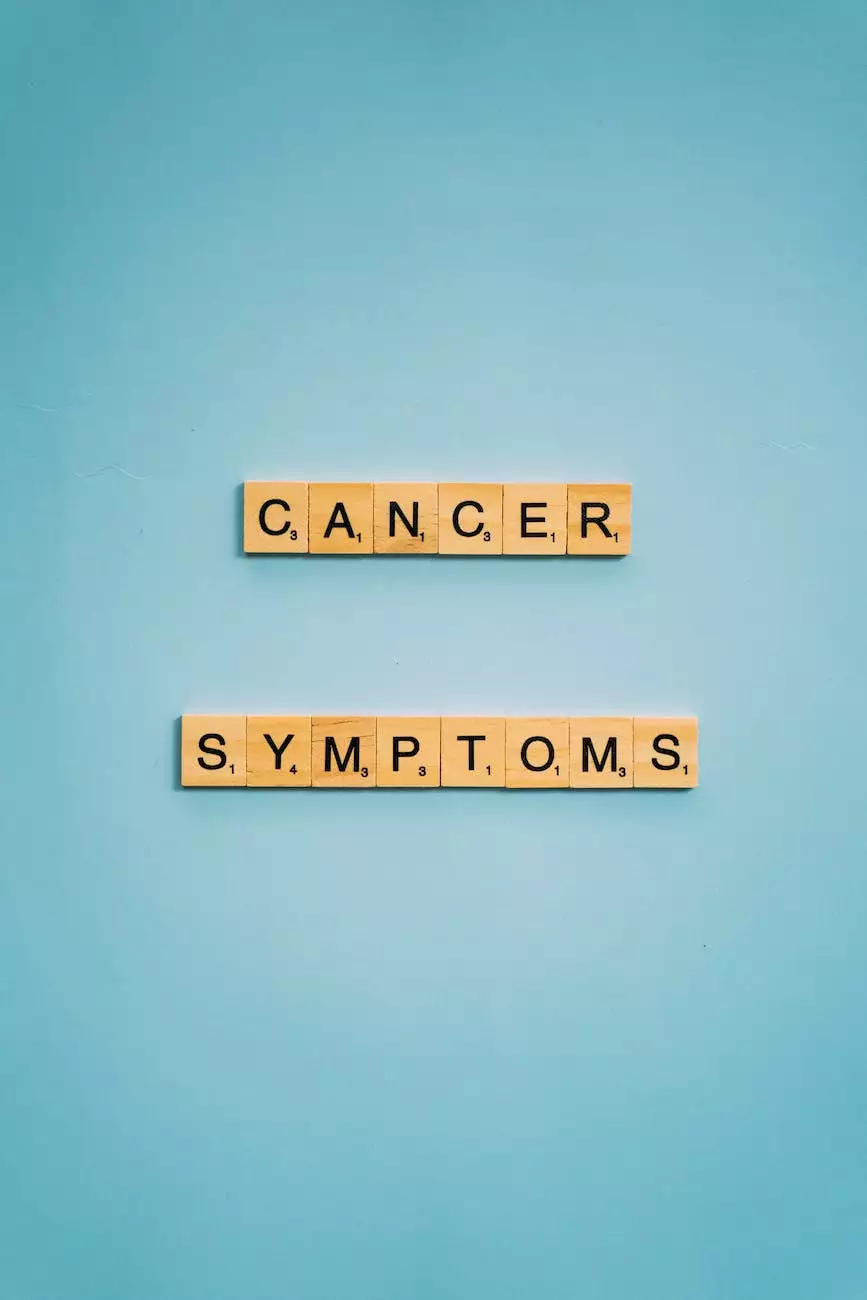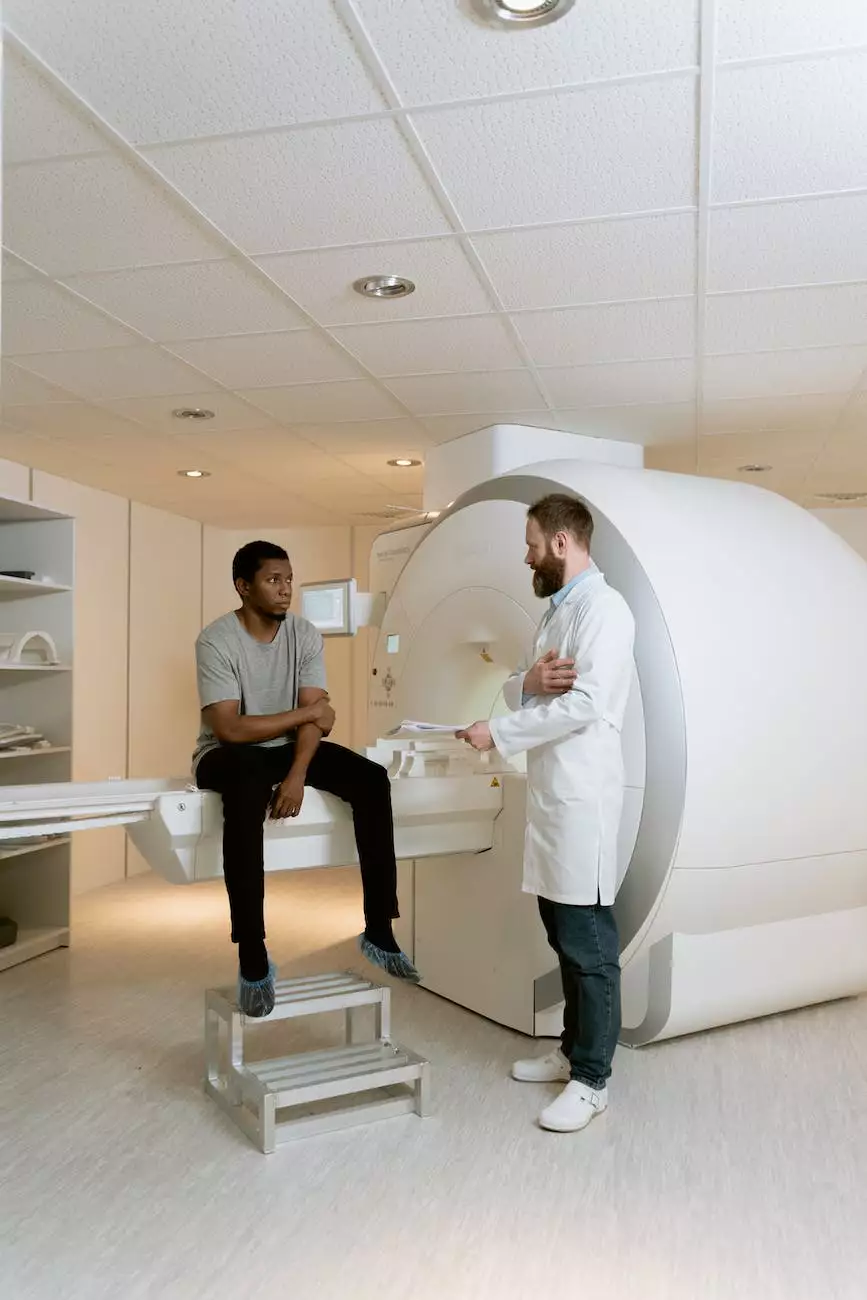Recognize the Risks and Symptoms of Ovarian Cancer

Introduction
Welcome to MUIR DIABLO OCCUPATIONAL MEDICINE, your go-to resource for vital health information. In this article, we will provide you with comprehensive insights into ovarian cancer, including its risks, symptoms, causes, and preventive measures. Our goal is to empower and educate you on how to recognize the early signs of ovarian cancer, ensuring early detection and effective treatment.
Understanding Ovarian Cancer
Ovarian cancer is a serious health condition that affects thousands of women worldwide. It occurs when abnormal cells in the ovaries grow and multiply uncontrollably, forming tumors. As with any cancer, early detection is crucial for successful treatment and improved survival rates.
Risk Factors for Ovarian Cancer
While the exact cause of ovarian cancer is unknown, certain factors may increase a woman's risk of developing the disease. These include:
- Family history of ovarian or breast cancer
- Age (occurrence is more common in women over 50)
- Genetic mutations (e.g., BRCA1 and BRCA2 gene mutations)
- Personal history of breast, uterine, or colorectal cancer
- Endometriosis
- Obesity
- Never being pregnant or having children later in life
Recognizing the Symptoms
Signs and symptoms of ovarian cancer may vary in different individuals, but it is crucial to be aware of the common warning signs, such as:
- Abdominal bloating or swelling
- Persistent pelvic pain or discomfort
- Feeling full quickly while eating
- Difficulty eating or a loss of appetite
- Urinary urgency or frequent urination
- Changes in bowel habits
- Unexplained weight loss or gain
- Abnormal vaginal bleeding
Importance of Early Detection
Early detection of ovarian cancer significantly improves the chances of successful treatment and long-term survival. Regular check-ups and awareness of the symptoms are vital steps to ensure early intervention and improved outcomes.
Preventive Measures
While it is not always possible to prevent ovarian cancer, certain preventive measures can help reduce the risk. These include:
1. Maintain a Healthy Lifestyle
Eating a nutritious diet, engaging in regular physical activity, and avoiding smoking or excessive alcohol consumption can contribute to overall well-being and potentially decrease the risk of developing various types of cancer, including ovarian cancer.
2. Birth Control Pills
Discussing the potential benefits of birth control pills with your healthcare provider may help reduce the risk of ovarian cancer. Oral contraceptives have been shown to provide protective effects against the disease.
3. Genetic Testing and Counseling
If you have a family history of ovarian or breast cancer, genetic testing and counseling can help assess your risk factors and provide guidance on preventive measures or early screening.
4. Be Aware of Your Body
Being in tune with your body and recognizing any unusual changes is crucial. If you experience persistent symptoms that concern you, it is essential to consult with your healthcare provider for proper evaluation and guidance.
5. Regular Check-ups
Scheduling routine check-ups and screenings with your healthcare provider can help detect any abnormalities at early stages, including ovarian cancer. Early diagnosis significantly increases treatment options and improves outcomes.
Conclusion
By actively recognizing the risks and symptoms of ovarian cancer, you are taking an important step towards protecting your health and well-being. Remember, early detection is key, and maintaining a healthy lifestyle along with regular check-ups can aid in decreasing the risk of ovarian cancer. Stay informed, be proactive, and trust the experts at MUIR DIABLO OCCUPATIONAL MEDICINE to provide you with accurate and reliable information.
For further assistance or personal consultations regarding ovarian cancer, feel free to visit our website or contact us directly. Your health matters to us!










